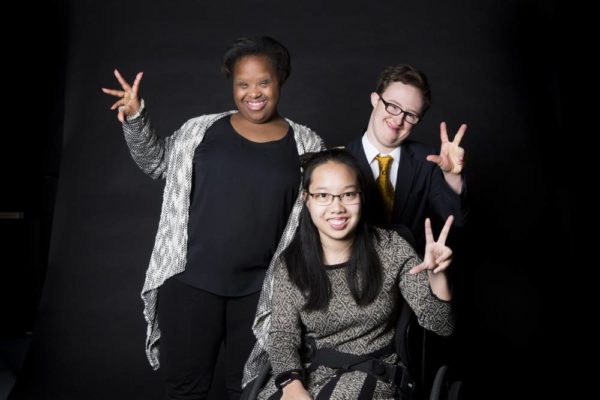
For the past decade, students with intellectual disability have found an inclusive postsecondary education experience through Next Steps at Vanderbilt. The program, housed in Peabody College of education and human development’s Department of Special Education, is marking its 10th anniversary with events and commemorations throughout 2020.
“Peabody College has long demonstrated its commitment to helping all learners be successful,” said Camilla P. Benbow, Patricia and Rodes Hart Dean of Education and Human Development. “We are proud of the work that Next Steps has done to prepare students who have intellectual disabilities with knowledge and skills for employment and independent living.”
The Next Steps program will recognize the anniversary with a series of monthly events and programs open to the entire Vanderbilt community. The program also launched a 10th-anniversary website, which includes information on upcoming events to celebrate the milestone, a photo gallery, reflections from alumni and “ambassadores” of the program, and more.
In 2010, the first class of students joined what would be Tennessee’s first inclusive higher education program for students with intellectual disability. The launch of Next Steps was a collaborative effort following several years of planning by the Vanderbilt Kennedy Center for Excellence in Developmental Disabilities, the Tennessee Council on Developmental Disabilities, the Down Syndrome Association of Middle Tennessee, the Arc of Williamson County, local educators and parents. The Linda Brooks Foundation provided the initial funding that allowed Next Steps to apply for a pilot grant from the Tennessee Council on Developmental Disabilities.
In the 10 years since the program’s start, it has grown from six students in 2010 to 35 students in 2019. The program has awarded 34 two-year certificates to students, 85 percent of whom were employed upon completion of the program. Of those 34 graduates, 91 percent currently have meaningful employment. Nationally, adults with intellectual and developmental disabilities have an 80 percent unemployment rate. Next Steps is flipping this statistic.

“Next Steps at Vanderbilt provides students with intellectual and developmental disabilities a college education while honoring equality, compassion and excellence in all endeavors,” said Tammy Day, director of Next Steps at Vanderbilt. “Standing on the shoulders of pioneers in the fields of research, training, education and service in intellectual and developmental disabilities, like Dr. Nicholas Hobbs and Dr. Susan Gray, Next Steps at Vanderbilt has worked to build collaborations across campus, across the community, across the state and across the nation.”
In 2015, the program expanded from a two-year to a four-year program, and this May, the first class of four-year students will graduate and participate in Commencement at Vanderbilt. “For too long, college was merely a distant dream for students with intellectual and developmental disabilities and their families. Now we are opening doors even wider and working to help open more doors on other campuses,” Day said.
Among the first recognitions of Next Steps’ 10th anniversary is a resolution from Vanderbilt Student Government. Next Steps also will be recognized during the Vanderbilt men’s basketball game on Feb. 22.
For more information about Next Steps at Vanderbilt, visit the Next Steps 10th anniversary website.
Peabody’s Department of Special Education, which has been home to the Next Steps program for the past 10 years, is currently ranked No. 1 in the U.S. News & World Report annual specialty rankings of graduate schools of education, a position it has held for 12 of the last 15 years. The mission of the department is to improve the lives of children and youth with disabilities by preparing exceptional teachers and researchers, conducting research that informs and improves educational programs and behavioral interventions, and leading professional associations and advocacy for persons with disabilities.